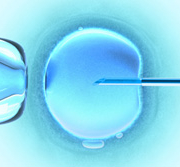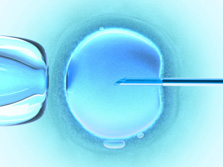A Chilling Prospect
‘Smart Women Freeze.’ So states the advert for an ‘egg freezing event’ in New York last week, run by EggBanxx . Over champagne, women anxious to beat their biological clocks by preserving their younger, healthier eggs until such a time when they are ready to start a family could meet one-to-one with a fertility expert.
In the same week, Apple and Facebook announced that they were willing to cover the cost of egg freezing for their female employees. At around $10,000 per cycle, this is an apparently generous offer, a laudable step towards a more level playing field between genders in the workplace, the latest caring ‘perk’ from family-friendly companies. No need to worry any longer about fading fertility levels, you can go on and on working safe in the knowledge that you’ve set aside a bunch of healthy young eggs that you can return to ‘when the time is right’.
Smart? Really? Let’s consider what the adverts leave out. The best flash-freezing method – vitrification – has a 77% failure rate in women aged 30, rising to a failure rate of 90% in women aged 40 . Some of the chemical agents used in the freezing process are known to be toxic to embryos; their absorption level in eggs is not known. In the US the average age of women who electively choose to egg-freeze is 37.4. The Society for Assisted Reproductive Technology (SART) estimates that for a woman age 38, the chance of one frozen egg leading to a live birth is only 2-12%.
The American Society for Reproductive Medicine (ASRM) Practice Committee, in October 2012, advised:
“Marketing this technology for the purpose of deferring childbearing may give women false hope… Patients who wish to pursue this technology should be carefully counselled.”
The committee’s chair at the time, Samantha Pfeifer, was quoted in a press statement as saying:
“While a careful review of the literature indicates egg freezing is a valid technique for young women for whom it is medically indicated, we cannot at this time endorse its widespread elective use to delay childbearing. This technology may not be appropriate for the older woman who desires to postpone reproduction.”
In the UK, egg freezing has been available for several years to women with cancer who wish to store eggs prior to chemotherapy. By December 2012, around 580 embryos had been created from frozen eggs. To date, only 20 babies have been born from frozen eggs, according to the HFEA.
If we set alongside the low success rates considerations of financial cost – I doubt Facebook and Apple will cover the cost of the IVF procedures needed later – and the invasive, sometimes traumatic process of egg harvesting, including the risk over ovarian hyperstimulation, then what purports to empower working women usually proves to be a fantasy, and sometimes a costly one at that.
In Christian thought children are gifts, given to us to love and care for, no matter how inconvenient their arrival. They are not commodities that we choose or own. Parenting is never ‘convenient’. At the heart of good parenting is self-sacrifice, not a popular concept in a culture that values self-fulfilment so highly. Contraception has enabled us to plan our families, to choose when we shall become parents. It has moved us in the direction of greater control over parenting. But there is a danger that by extending the scope of control further still we make it harder still to guard the essential, sacrificial nature of parenting without which the very structure of society is imperiled.





Leave a Reply
Want to join the discussion?Feel free to contribute!